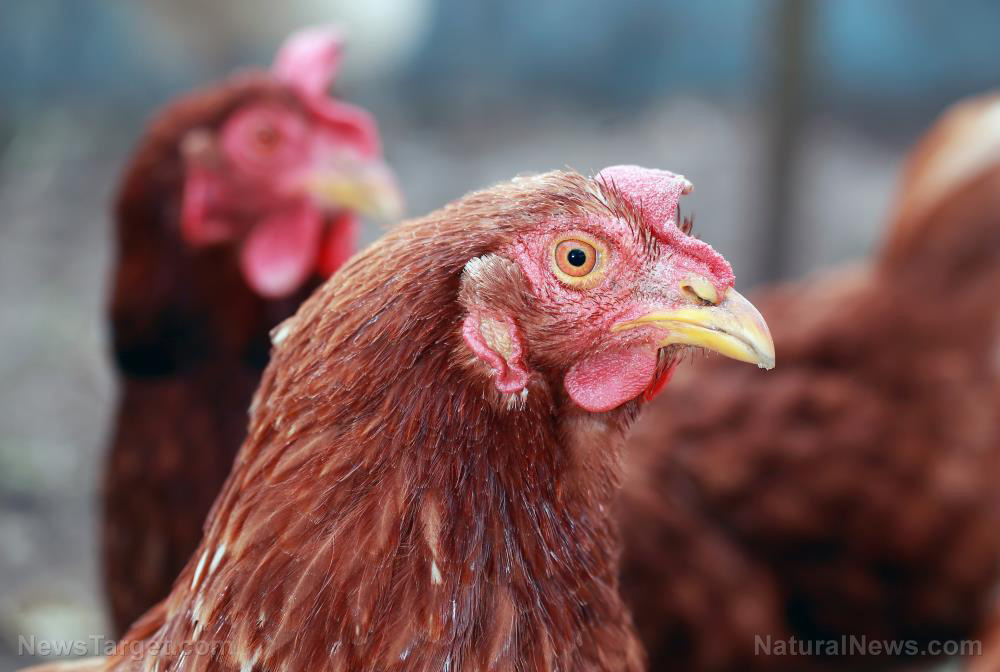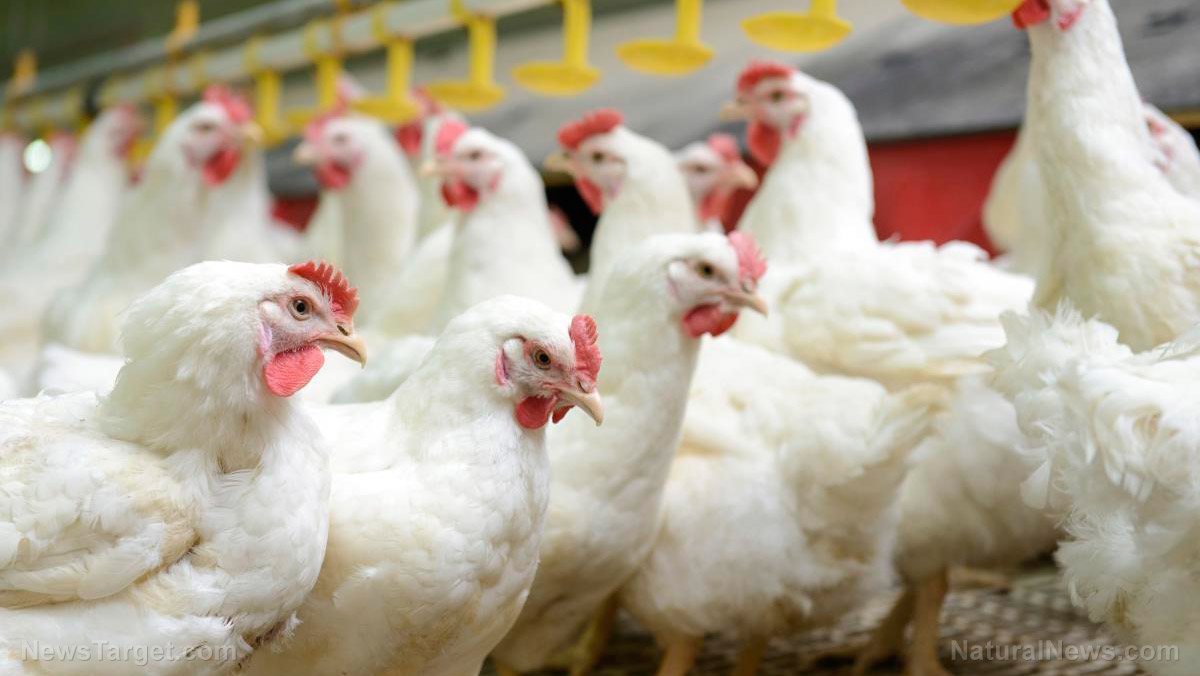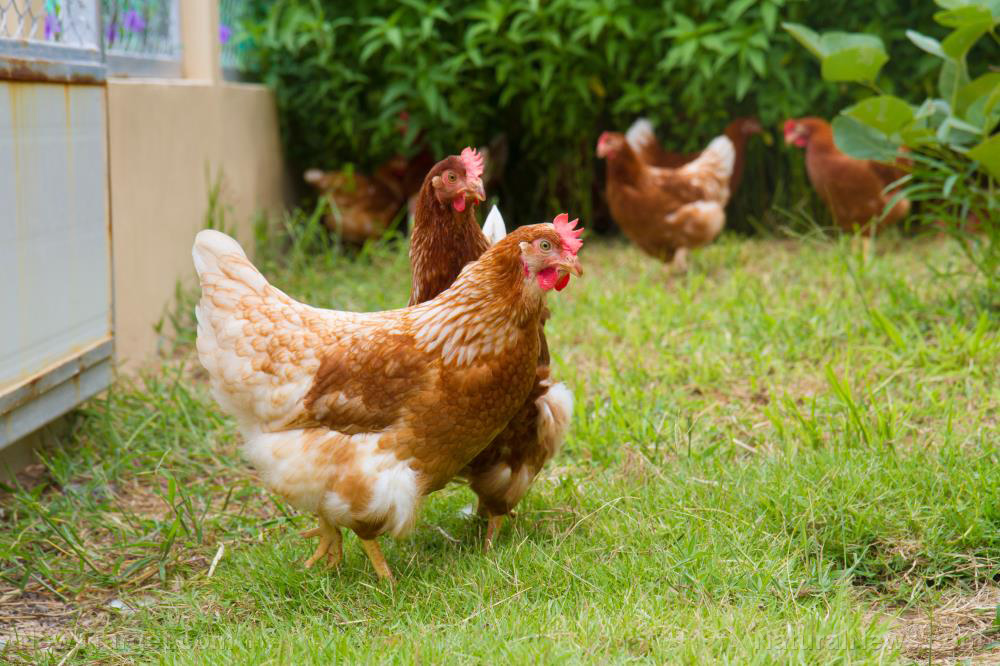
The Minnesota Board of Animal Health (BAH) has issued a temporary statewide ban on the sale and exhibition of poultry supposedly due to the spread of avian flu in the state.
The BAH's statewide ban will last from April 1 through May 1. The prohibition includes a ban on all community sales, swaps, fairs, exhibitions and other events "where poultry and susceptible birds are brought together."
The outbreak in Minnesota, known as the H5N1 highly pathogenic avian influenza (HPAI), is considered to pose a high risk to poultry but a low risk to the public. State health officials have stressed that there is no need for the public to panic over concerns regarding food safety. (Related: America's poultry giants have sold tens of thousands of meat products contaminated with DEADLY BACTERIA.)
"Viruses like HPAI need hosts to continue to spread. It's our job to stop the spread of disease," said State Veterinarian Dr. Beth Thompson. "Unfortunately, in this situation, we feel one of the best things we can do for the health of all birds in Minnesota is to take a pause on poultry events through May 1."
The first cases in this outbreak were detected on March 25. This is the first time avian flu cases were detected in the state since 2015.
During the 2014-2015 outbreak, Minnesota canceled all poultry shows at the State Fair, and state authorities euthanized more than nine million birds. Authorities had to cull so many flocks that the governor had to activate the National Guard to assist with disease control.
The current outbreak has already spread to 34 states and has affected an estimated 22.8 million birds so far. Iowa has been particularly hard hit, losing over 13 million birds.
More than a million birds supposedly affected by bird flu
When the BAH published its initial report and ordered the ban, avian flu was detected in flocks in five counties in central, southwestern and southeastern Minnesota – Meeker, Stearns, Kandiyohi, Lac qui Parle and Mower counties.
As of the latest report from the Minnesota National Guard published on April 7, the avian flu has spread to 1,017,568 birds from 21 flocks in 11 counties. It has also spread to south-central, northwest and northeastern Minnesota. The two largest flocks alone account for 420,000 turkeys.
All of the affected flocks are currently being "depopulated" by state health authorities. The affected properties where the flocks reside were also placed under quarantine, and the bird carcasses are composted inside the barns to minimize the risk of accidental spread of the flu.
"The way to contain this flu is unfortunate," said Dr. William Schaffner, an infectious disease specialist and professor of preventive medicine and health policy at Vanderbilt University. "What you do is actually kill a lot of poultry in order to prevent areas from becoming hot spots for bird flu."
Furthermore, all flocks within 6.2 miles of the affected farm have been placed under quarantine. The birds on the farms will be tested by state health authorities before normal poultry operations in those farms can resume.
Minnesota Legislature approves $1 million in emergency funding to combat outbreak
To help combat the spread of avian flu in the state, both chambers of the Minnesota Legislature have voted to provide the Minnesota Department of Agriculture (MDA) with an additional $1 million.
Republican State Sen. Torrey Westrom advanced an amendment to another bill to get the emergency funding for the department approved. The Senate passed the bill with the amendment unanimously on April 7.
The emergency funding was then sent directly to the House of Representatives for approval. All but one lawmaker voted in favor of the bill.
"Minnesota farmers needed this relief yesterday, and we cannot afford to wait any longer," said Westrom.
"The needs for both commercial and backyard flocks to respond quickly to HPAI is important, and the funding provided today gives those impacted the resources they need," said Minnesota Farm Bureau President Dan Glessing, speaking on behalf of other farm organizations in the state.
Additional agriculture funding and emergency relief bills are being drawn up in the state legislature and could offer affected farmers even more aid.
Watch this episode of the "Health Ranger Report," a podcast by Mike Adams, the Health Ranger, as he talks about how Americans are finally waking up to the reality that they might also experience food shortages.
This video is from the Health Ranger Report channel on Brighteon.com.
More related stories:
US government diagnosing chickens with bird flu using fraudulent PCR tests, then slaughtering them.
Soaring fertilizer prices ahead of planting season could lead to higher food prices, shortages.
Sources include:
Please contact us for more information.





















